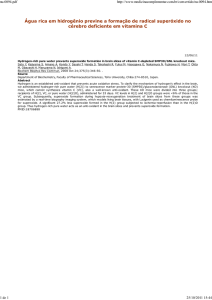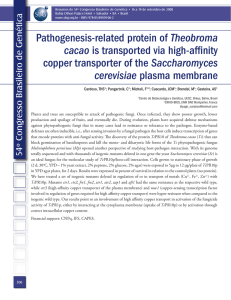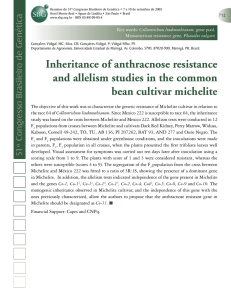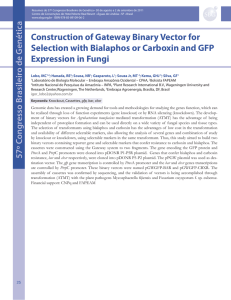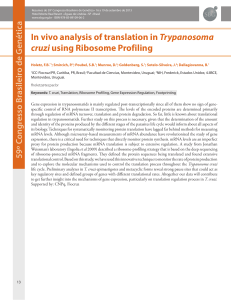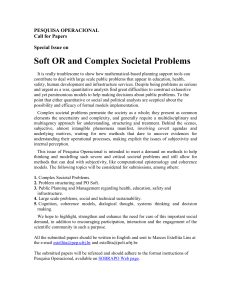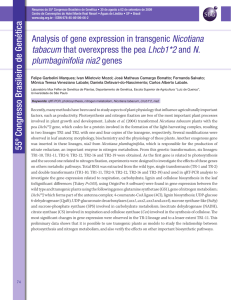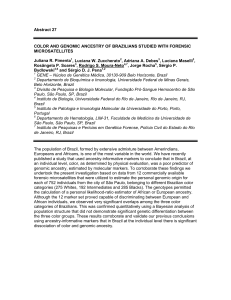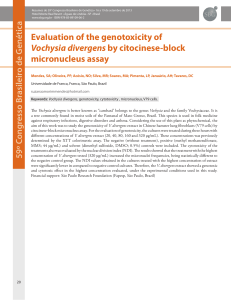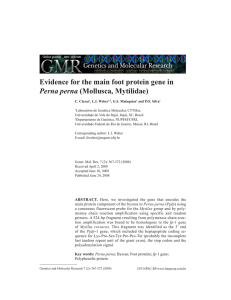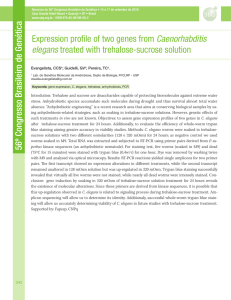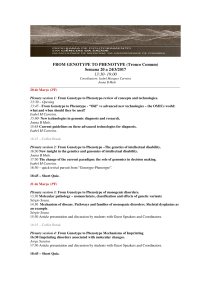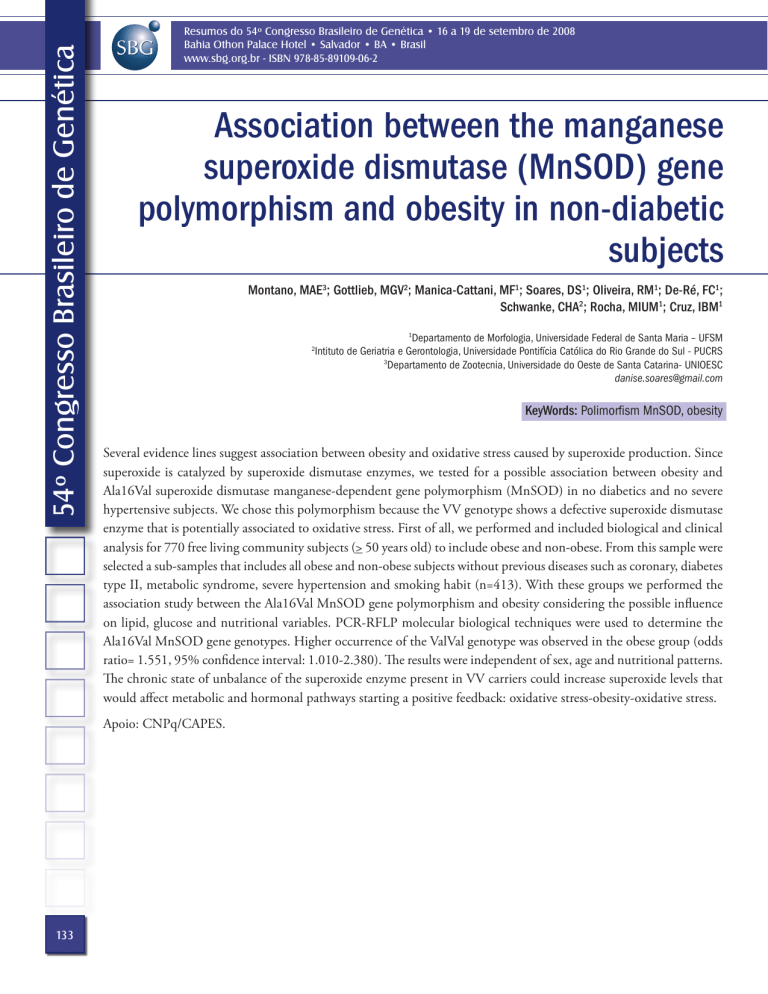
54º Congresso Brasileiro de Genética
Resumos do 54º Congresso Brasileiro de Genética • 16 a 19 de setembro de 2008
Bahia Othon Palace Hotel • Salvador • BA • Brasil
www.sbg.org.br - ISBN 978-85-89109-06-2
Association between the manganese
superoxide dismutase (MnSOD) gene
polymorphism and obesity in non-diabetic
subjects
Montano, MAE3; Gottlieb, MGV2; Manica-Cattani, MF1; Soares, DS1; Oliveira, RM1; De-Ré, FC1;
Schwanke, CHA2; Rocha, MIUM1; Cruz, IBM1
1
Departamento de Morfologia, Universidade Federal de Santa Maria – UFSM
Intituto de Geriatria e Gerontologia, Universidade Pontifícia Católica do Rio Grande do Sul - PUCRS
3
Departamento de Zootecnia, Universidade do Oeste de Santa Catarina- UNIOESC
[email protected]
2
KeyWords: Polimorfism MnSOD, obesity
Several evidence lines suggest association between obesity and oxidative stress caused by superoxide production. Since
superoxide is catalyzed by superoxide dismutase enzymes, we tested for a possible association between obesity and
Ala16Val superoxide dismutase manganese-dependent gene polymorphism (MnSOD) in no diabetics and no severe
hypertensive subjects. We chose this polymorphism because the VV genotype shows a defective superoxide dismutase
enzyme that is potentially associated to oxidative stress. First of all, we performed and included biological and clinical
analysis for 770 free living community subjects (> 50 years old) to include obese and non-obese. From this sample were
selected a sub-samples that includes all obese and non-obese subjects without previous diseases such as coronary, diabetes
type II, metabolic syndrome, severe hypertension and smoking habit (n=413). With these groups we performed the
association study between the Ala16Val MnSOD gene polymorphism and obesity considering the possible influence
on lipid, glucose and nutritional variables. PCR-RFLP molecular biological techniques were used to determine the
Ala16Val MnSOD gene genotypes. Higher occurrence of the ValVal genotype was observed in the obese group (odds
ratio= 1.551, 95% confidence interval: 1.010-2.380). The results were independent of sex, age and nutritional patterns.
The chronic state of unbalance of the superoxide enzyme present in VV carriers could increase superoxide levels that
would affect metabolic and hormonal pathways starting a positive feedback: oxidative stress-obesity-oxidative stress.
Apoio: CNPq/CAPES.
133

